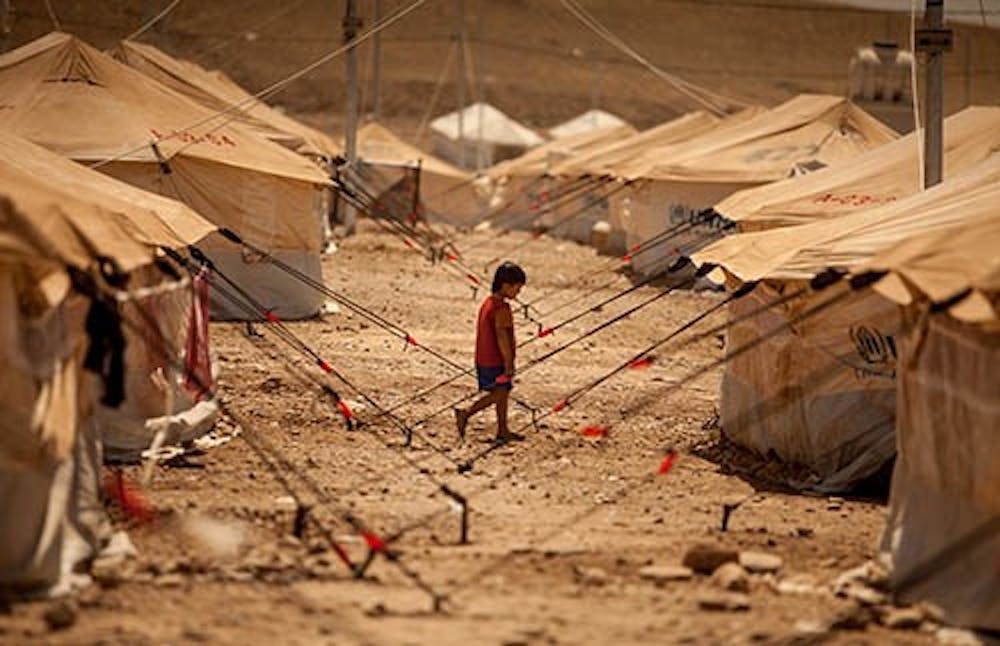The United States is considering launching a punitive strike against the regime of Syrian President Bashar al-Assad, blamed by the U.S. and the Syrian opposition for an Aug. 21 alleged chemical weapons attack in a rebel-held suburb of the Syrian capital of Damascus. The U.S. said the attack killed 1,429 people, including at least 426 children. Those numbers are significantly higher than the death toll of 355 provided by the aid group Doctors Without Borders.
President Barack Obama said he has decided that the U.S. should take military action against Syria, but is seeking congressional authorization for the use of force in a vote expected after Congress returns to work Monday.
Here’s a look at key Syria developments around the world Monday amid heightened tensions over potential military action:
SYRIA:
Assad said military strikes against his country would risk triggering a regional war. He said the Middle East is a “powder keg” and no one can say what will transpire if the West takes military action against Syria. He warned, “the whole world will lose control of the situation. Chaos and extremism will spread. The risk of a regional war exists.”
UNITED STATES:
Sen. John McCain told reporters at the White House that Obama must make a strong case for attacking Assad’s Syria if he wants to win congressional backing for the operation. He also said Obama’s intervention now will be more difficult because Assad “is moving his forces around.” Both McCain and Sen. Lindsay Graham, who spoke after meeting Obama, questioned the wisdom of the administration publicly signaling in advance its intention to strike.
FRANCE:
A French intelligence report estimated that the Syrian regime launched the alleged Aug. 21 attack involving a “massive use of chemical agents” and could carry out similar strikes in the future. The government, on its website, published a nine-page intelligence synopsis about Syria’s chemical weapons program that found that at least 281 deaths could be attributed to the attack in rebel-held areas outside Damascus.
RUSSIA:
The Russian news agency Interfax said President Vladimir Putin hopes to send a delegation of lawmakers to the U.S. to discuss the situation in Syria with members of Congress. Russian Foreign Minister Sergey Lavrov said evidence the U.S. showed Moscow to blame the Syrian regime for the alleged chemical weapons attack was “absolutely unconvincing.” He said, “there was nothing specific” in the evidence.
TURKEY:
Turkish Prime Minister Recep Tayyip Erdogan’s chief adviser brushed aside fears that a U.S. strike against Syria could provoke Damascus to attack Turkey. Yalcin Akdogan told the Turkish daily newspaper Aksam that an attack on Turkey “would be madness and suicide” because Turkey is a member of NATO. The alliance is committed to defending member states.
CHINA:
Chinese Foreign Ministry spokesman Hong Lei said his country urged the U.S. not to take unilateral action against Syria. He said Washington briefed Beijing about the matter and that China is concerned about chemical weapons use but that the country opposes the U.S. acting alone. Hong didn’t address the possibility of the U.S. acting together with France’s government, which supports a strike. Beijing would almost certainly be opposed to any strike.
GERMANY:
Chancellor Angela Merkel and her challenger in Germany’s upcoming election said late Sunday they wouldn’t participate in military action against Syria. Merkel said there must be “a collective answer by the U.N.” to the use of chemical weapons in Syria as she faced center-left rival Peer Steinbrück in a televised debate. Steinbrück said he wouldn’t participate in military action as chancellor and would “greatly regret it” if the U.S. strikes alone without an international mandate.


